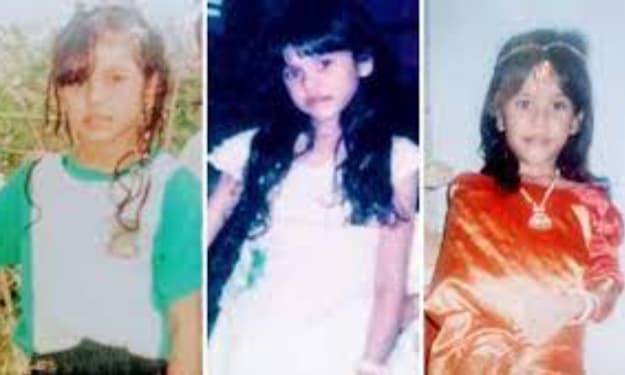
In the summer of 2022, the peaceful streets of Bradford, England, became the backdrop for a harrowing tragedy that sent shockwaves through the community. Mohammed Taroos Khan, driven by a misguided sense of familial honor, took the life of his 20-year-old niece, Somaiya Begum. The motive behind this appalling act was Somaiya's refusal to comply with an arranged marriage, a decision that shattered the delicate balance between tradition and individual autonomy.
As the details of this gruesome incident emerged, the world recoiled at the brutality that unfolded within the confines of a family home. Somaiya, a young woman with dreams and aspirations, found herself ensnared in the suffocating web of familial expectations. The events leading up to that fateful day revealed a stark clash between generations, cultural norms, and the rights of individuals to shape their destinies.
Somaiya's tragic story began with her courageous decision to resist an arranged marriage, a choice that, in the eyes of her uncle Mohammed Taroos Khan, became an affront to deeply ingrained cultural traditions. The clash between tradition and the evolving landscape of personal autonomy is a narrative that transcends borders and resonates in societies navigating the delicate dance between heritage and progress.
The events of that June day unfolded with chilling precision, leaving scars not only on the lives directly affected but on the collective consciousness of a community grappling with the repercussions of such a heinous act. Understanding the layers of this tragedy requires a careful examination of the societal constructs that contributed to the toxic blend of patriarchal expectations, cultural rigidity, and the quest for individual agency.
Somaiya's refusal to accept an arranged marriage, a practice deeply rooted in certain cultural and familial traditions, became the catalyst for a series of events that would culminate in her untimely death. It is crucial to recognize that the concept of arranged marriages, while steeped in historical context, exists on a spectrum. For some, it is a choice made willingly, while for others, like Somaiya, it represents a stifling imposition on personal freedom.
As the narrative unfolds, the figure of Mohammed Taroos Khan emerges as a tragic character shaped by the confluence of cultural expectations and personal beliefs. His actions, however reprehensible, are symptomatic of a larger societal issue—one that demands a nuanced exploration of the factors contributing to such extreme reactions in the face of perceived familial dishonor.
The footage depicting Khan collecting Somaiya's lifeless body from a storage container and callously driving to dispose of her remains serves as a chilling reminder of the depths to which misplaced notions of family honor can plunge individuals. It also prompts a broader conversation about the role of technology in documenting and, at times, sensationalizing tragic events, raising ethical questions about the dissemination of such graphic content.
Somaiya's story forces us to confront uncomfortable truths about the intersections of culture, tradition, and individual agency. It compels us to scrutinize the ways in which societal expectations, especially those related to marriage, can become oppressive forces, stifling the aspirations and desires of individuals who dare to challenge the status quo.
The aftermath of Somaiya's murder reverberated far beyond the confines of her family. It laid bare the fault lines within the community, sparking discussions about the need for introspection and reform. The tragedy prompted soul-searching on a collective level, forcing individuals to confront uncomfortable questions about the cost of preserving cultural traditions at the expense of individual lives.
In the wake of such a horrific event, it is imperative to address the complex dynamics that perpetuate a culture of silence around issues of domestic violence, familial honor, and the pressure to conform. Somaiya's story is not merely an isolated incident but a symptom of broader systemic issues that demand a comprehensive societal response.
The role of cultural sensitivity in discussing such matters cannot be overstated. It is crucial to avoid perpetuating harmful stereotypes or fostering an environment that might further stigmatize communities grappling with the aftermath of such tragedies. Sensitivity should not, however, come at the cost of evading necessary conversations about cultural practices that perpetuate harm and hinder progress.
Somaiya Begum's tragic death serves as a stark reminder of the urgent need for open dialogue surrounding issues of cultural coercion, familial expectations, and the right of individuals to shape their destinies. It compels us to reevaluate the narratives that inform our understanding of honor, duty, and the boundaries of personal autonomy.
In conclusion, the heartbreaking tale of Somaiya Begum, a young woman whose life was cut short by the very bonds of family that should have protected her, forces us to confront uncomfortable truths about the intersections of culture, tradition, and individual agency. Her story serves as a rallying cry for change, demanding that we dismantle the oppressive structures that allow tragedies like hers to occur. Only through open dialogue, cultural sensitivity, and a commitment to fostering environments that empower rather than constrain can we hope to prevent the recurrence of such devastating events. Somaiya's legacy must become a catalyst for societal introspection and, ultimately, transformation.






Comments
There are no comments for this story
Be the first to respond and start the conversation.